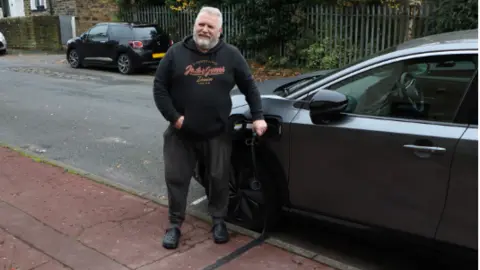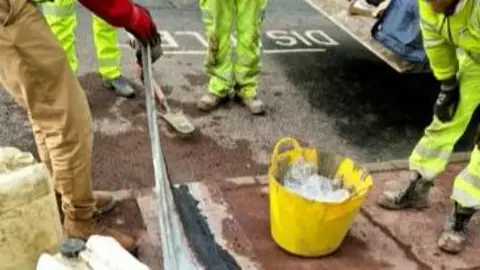'Eight times more' electric charging points needed
 Lancashire County Council
Lancashire County CouncilLancashire will need eight times as many electric vehicle charging points by the end of the decade, the council has said.
Just over a third of the cars and vans on the county’s roads are expected to be fully electric or hybrid within the next six years.
Lancashire County Council has calculated that an extra 6,665 charging stations will be needed to meet the demand by 2030.
There were 817 in operation in July. The council is now exploring where to install new charging points for motorists without driveways or garages.
Special "cable trays" for such residents are being trialled, with 60 households taking part.
The trays allow residents without off-street parking to hook up their cars to their home supply via a cable that runs through a channel cut into the pavement.
Volunteer motorist Mike Pickering, of Nelson, said: "I live in a terraced street so this is the first scheme I have been able to use that is so local to me."
The 65-year-old said it was "eight times cheaper" to use electric and he can charge his car overnight close to home.
Another charging option could see lampposts used as charging points.
 Lancashire County Council
Lancashire County CouncilHowever, councillor Alan Cullens told a council transport meeting that he feared problems with anti-social behaviour over access to charging points near people's homes, with residents arguing over access.
The councillor added that there could be "charging wars at public stations as well, because people are going to be driving around trying to find one that’s vacant”.
The council was last year allocated £10.1m from the government’s Local Electric Vehicle Infrastructure fund to invest in new chargers.
Listen to the best of BBC Radio Lancashire on Sounds and follow BBC Lancashire on Facebook, X and Instagram. You can also send story ideas to [email protected] and via Whatsapp to 0808 100 2230.
